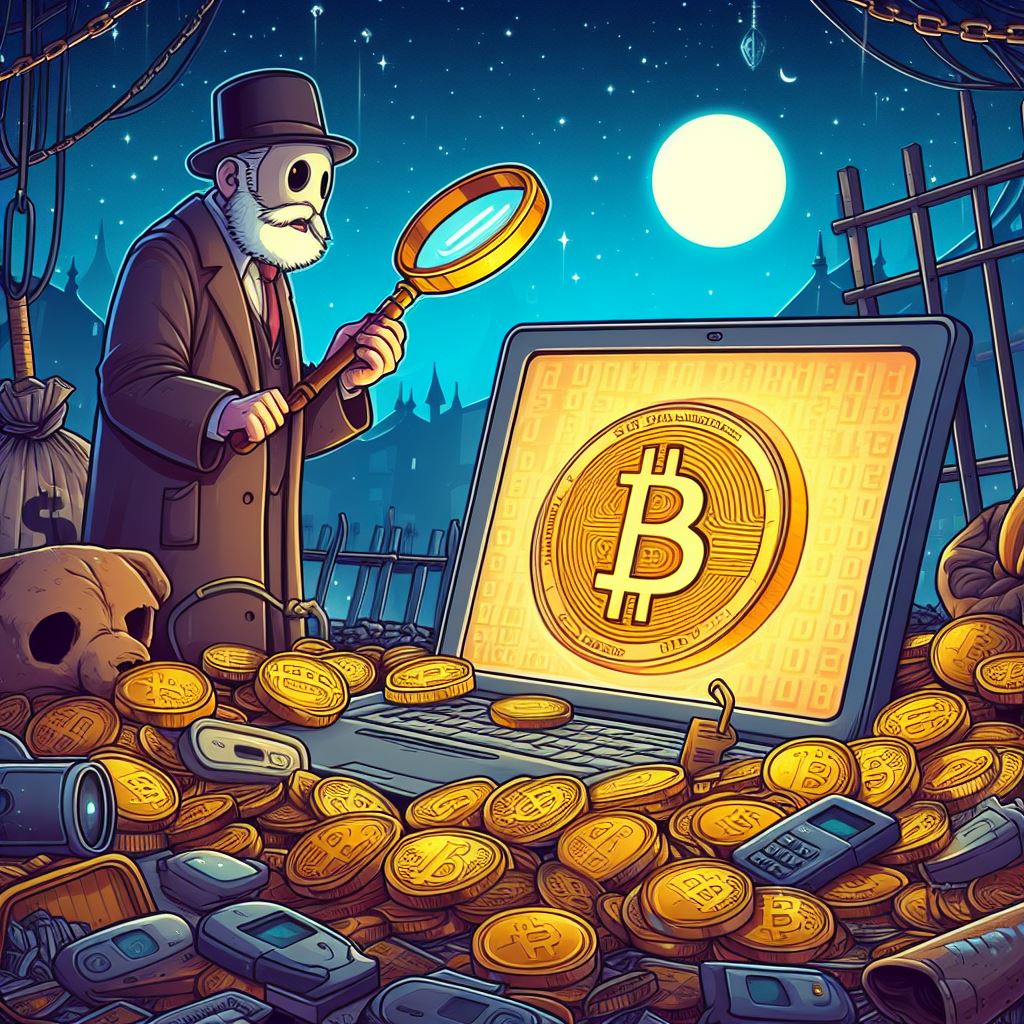I recall that day in 2009 when a tech-savvy friend first told me about this new digital currency known as "bitcoin." I wasn't paying close attention back then. Who knew that ignoring his advice to "buy a few coins" would come back to haunt me?
Over the next few years, I stood by and watched as bitcoin's value rose gradually, then exponentially. Early adopters became millionaires almost instantly. And me? I stood there empty-handed, ruining my friend's hot tip's day.

By the time 2013 rolled around, bitcoin fever had spread across the globe. The crypto-gold rush was in full swing. This time, I decided I didn't want to miss the boat. I set up a bitcoin wallet, bought my first few coins, and safely stored the private key on my old laptop. Or so I thought...
A disaster struck a few months later. My laptop crashed and refused to restart. That's when I realised I hadn't saved my private key. I tried every data recovery trick I could find online, but it was too late. Those priceless keys, along with my laptop, were lost in digital oblivion. Once again, I could only watch helplessly as the bitcoin I owned grew in value.
My Beginner’s Bad Luck
Stories like mine have unfortunately become all too common in recent years. With over 19 million bitcoins in circulation, worth approximately $350 billion, I'm far from the only newcomer who has discovered the high cost of making rookie crypto mistakes.
A study published in the journal Scientific Reports in 2021 examined public posts on Reddit forums between 2013 and 2018. Researchers discovered nearly 4,000 first-hand accounts from redditors who described how they lost access to their bitcoin holdings. The majority involved forgotten passwords and lost private keys, with a median amount of cash lost per person of $400—amounts ranging from $30 to a heartbreaking $6 million+.
Here are 5 real stories of people losing access to their bitcoin or cryptocurrency funds due to forgotten passwords or lost private keys.
Five stories of lost fortunes
1. James Howells was an early Bitcoin
miner who mined around 7,500 bitcoins on his
home computer in 2009. In mid-2013, while
clearing out old electronics in his home
office, he accidentally threw out the hard
drive containing his private Bitcoin wallet
and keys. The stash of coins was worth
around $7.5 million at the time. Today, with
bitcoin prices skyrocketing, his haul would
be worth more than $150 million! Despite
searching the local landfill on several
occasions, Howell has yet to find the
discarded hard drive. His request to
excavate the dump was even denied by the
city council.
2. In late 2013, a man
from Norway recounted how, back in 2009, he
had allowed an old friend to use his
computer for Bitcoin mining. As a token of
appreciation, the friend sent 4,100 bitcoins
to the man's digital wallet at the time.
However, not fully understanding this new
internet money craze, the man formatted the
drive containing his Bitcoin private keys in
2013 while repairing his desktop. At that
point, he literally flushed $7.8 million
down the toilet. With Bitcoin reaching a
high of $20,000 since then, his lost crypto
stash is now worth a heartbreaking $82
million!
3. In 2014, a Reddit user
claimed he had misplaced an encrypted
Bitcoin wallet containing approximately
7,500 coins from 2012. Despite his best
efforts, he couldn't recall entering the
password to unlock the wallet. That haul
would be worth close to $150 million in
today's market. The dramatic increase in
potential value makes his loss even more
painful to bear.
4. Stefan Thomas, a
German-born programmer who lives in San
Francisco, famously received 7,002 bitcoins
as payment from an early employer in 2011.
His bitcoin fortune today would be around
$220 million if he could just remember the
IronKey password required to access his
digital wallet containing the private keys!
However, after 10 failed password attempts,
the secure device erases the contents.
Thomas has tried eight incorrect passwords
so far, with only two more attempts before
losing his small crypto fortune
indefinitely.
5. In 2019, a case
involving the sudden death of a man who
owned a cryptocurrency account worth an
estimated $190 million came to light.
However, the day before his death, he told
friends that he had been locked out after
forgetting his account password. He died
without leaving a record of his private keys
or recovery password, making it impossible
for his family to access the funds he left
behind. The cryptocurrency exchange that
holds his vast fortune is still negotiating
with his next of kin to release the funds.

The Immutability of Bitcoin's Decentralised Nature
Bitcoin's decentralised and trustless consensus mechanism for confirming transactions without a central party is a key technical innovation. This is accomplished through the use of a distributed timestamp server that contains a hash chain of proof-of-work blocks and is enforced by a decentralised network of nodes. Transactions cannot be reversed once they have been validated and recorded on Bitcoin's blockchain, even by the most powerful actors.
This immutability is a feature, not a flaw, because it prevents double spending and censorship. However, it also means that there are no recovery mechanisms for lost private keys or forgotten passwords. Unlike traditional finance, which has password recovery options, losing private keys in Bitcoin is extremely costly, frequently resulting in stranded funds that cannot be recovered.
For cryptocurrency pioneers, this reinforces why securely storing seeds, keys, and passwords is an essential personal responsibility in a decentralised system with no centralised middlemen or backup options. The technological tradeoff for an uncensorable, tamper-proof ledger is both the blessing and the curse of irreversibility.
In comparison to
the five tragic cases described above, I
consider myself fortunate that my bitcoin
disaster was minor. However, losing even
that small sum as a result of my stupid
error back then proved to be a costly
lesson. You can bet I've taken password
security very seriously since then!